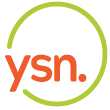D id you happen to catch Microsoft’s Modern Workplace webcast on global teams, cultures, and communications? Global Workforce: The New Culture of Work featured Cam Marston of Generational Insights and Kelly Joscelyne, Chief Talent Officer at Mastercard, bringing their broad range of experience to speak to what’s new, what’s changing, and what’s most challenging in today’s global and multi-generational workforce.
One of the most fascinating insights was brought up by Cam Marston. He spoke to the fact that we are currently in an unprecedented place: for the first time in history, something so critical to business—technology—is owned almost completely by the youth. Historically, wisdom and experience came with the older generations. Now, it’s the youth who own one of the most important skills, even though they aren’t as experienced as the older generations in the workforce. It’s a fascinating switch, and one that also brings its own set of challenges.

Here at YSN, we often hear employers say that while the younger generations have technology skills, they are often weak in necessary soft skills such as listening and emotional intelligence. We hear this from employers around the globe, so this isn’t limited to one place or culture. Schools generally don’t teach soft skills even though they are so imperative to a successful and happy life, so many (if not most) corporate HR executives are having to build in extra training to on-board new talent. As a member of the younger generations entering the workforce, learning these soft skills now will put you well ahead of others, regardless of what job you decide to pursue.
Kelly Joscelyne also explained three common hurdles to having a successful distance team in today’s global workforce. The first is cultural sensitivity. Her example was a suggested ad campaign at Mastercard that said included the statement, “Imagine if your fridge could refill the milk for your cereal.” The Asian members of her team replied by kindly pointing out how Western this was, as cereal is not eaten everywhere in the world.
The next two common barriers to global team building are social distance—meaning how to build trust with teams who are geographically separated—and understanding communication and tone, both of which change from culture to culture and generation to generation. Kelly Joscelyne cited the example that English speakers tend to dominate conversations—likely because of their culture of rewarding extroverted tendencies—so assuring that everyone’s voice is heard is key.
Both Cam and Kelly agreed that the best success strategies involve leaders getting to know their team members as individuals. Finding communication tools and ways to work together that address the cultural difference so that everyone can be heard and understood is also key.
And, as Cam stated, it’s good to remember that people generally want many of the same things, regardless of age or culture. Wanting to be happy, to be recognized, or to be rewarded isn’t generational or cultural. It’s human. Here at YSN, we believe that the more of these commonalities you can find—even and perhaps especially with people who seem completely different from you—the better we can all understand each other and work together.
YSN is proud to partner with Microsoft Office to spread the word about their Modern Workplace webcast. To find out more, check out the webcast for yourself.





